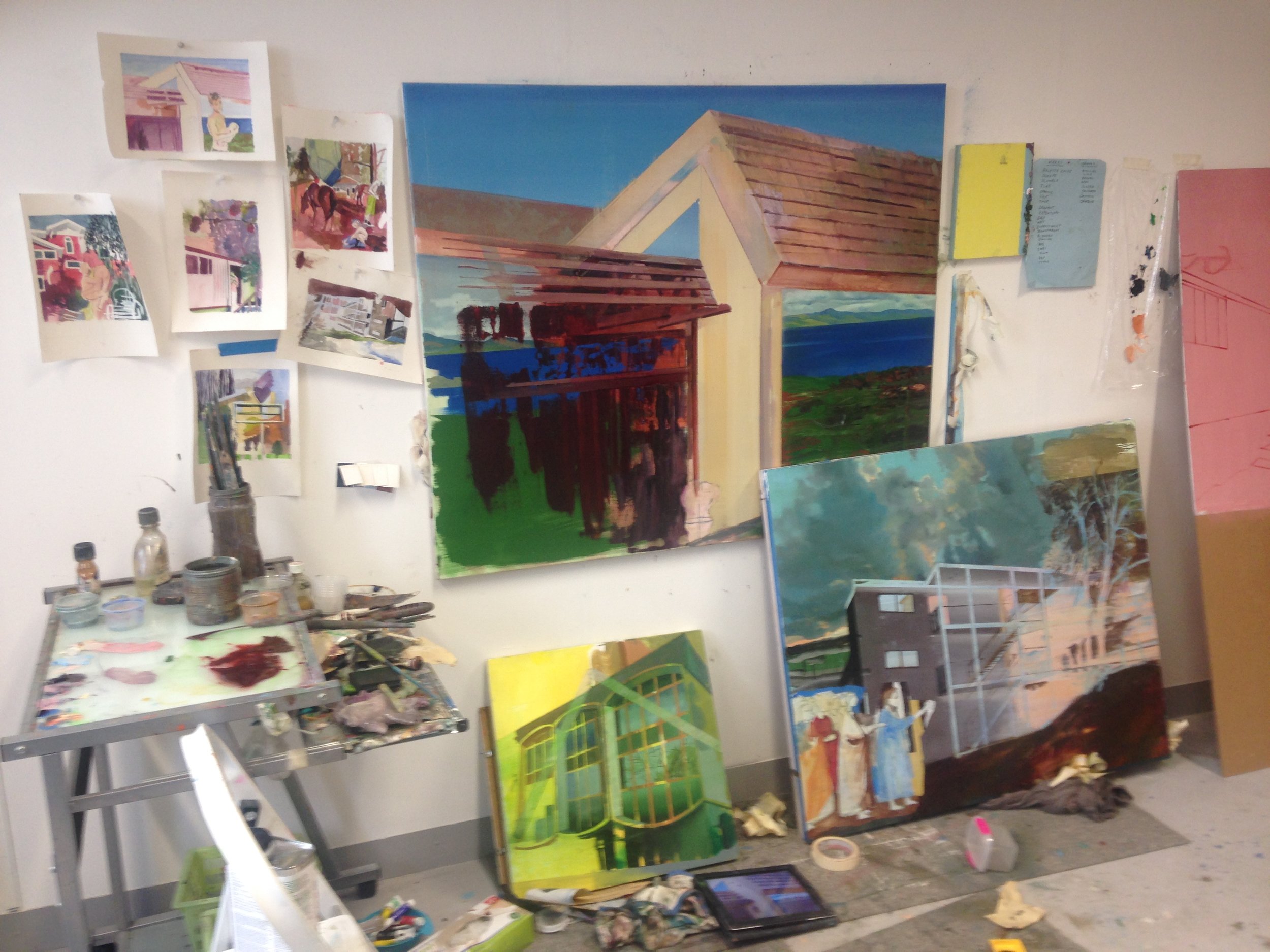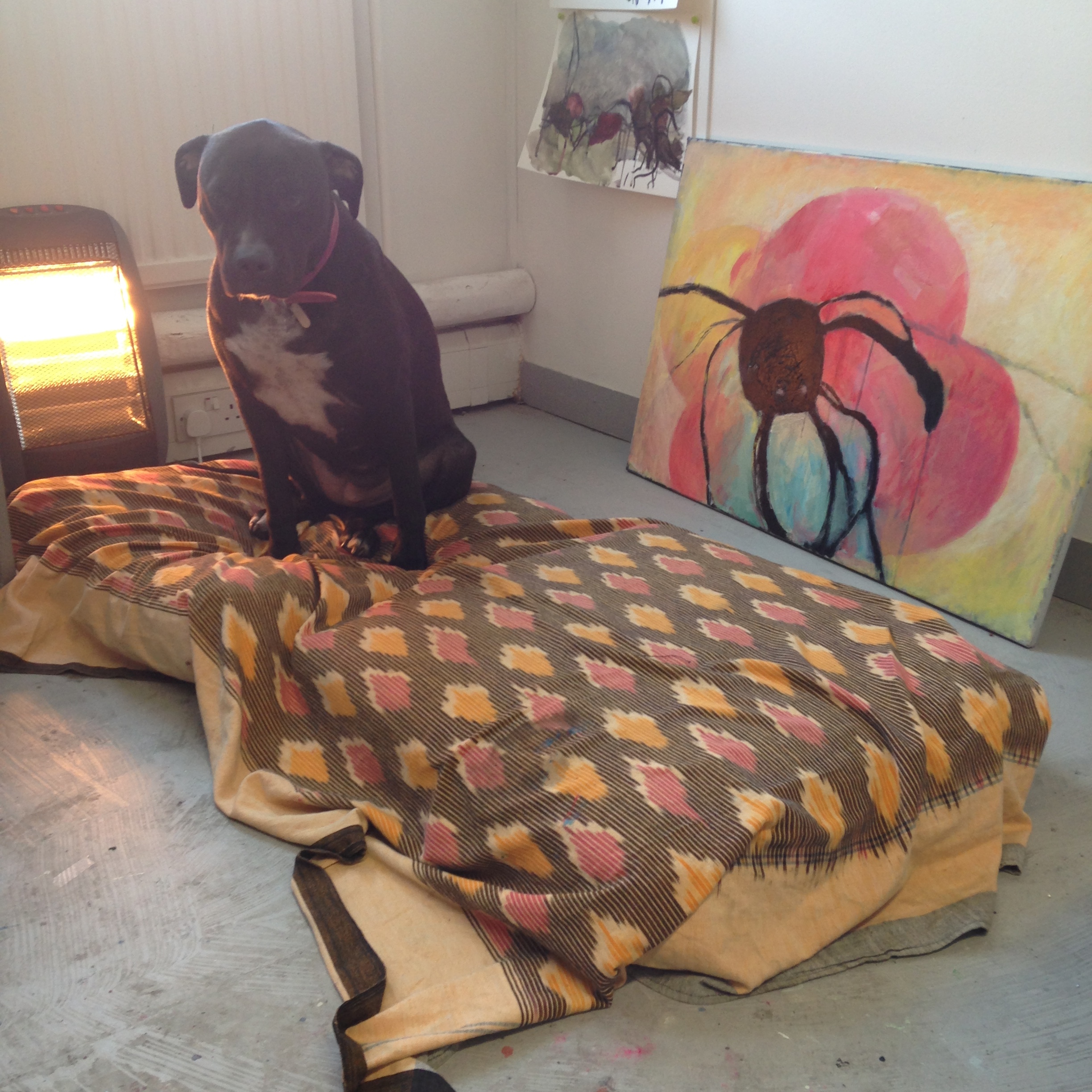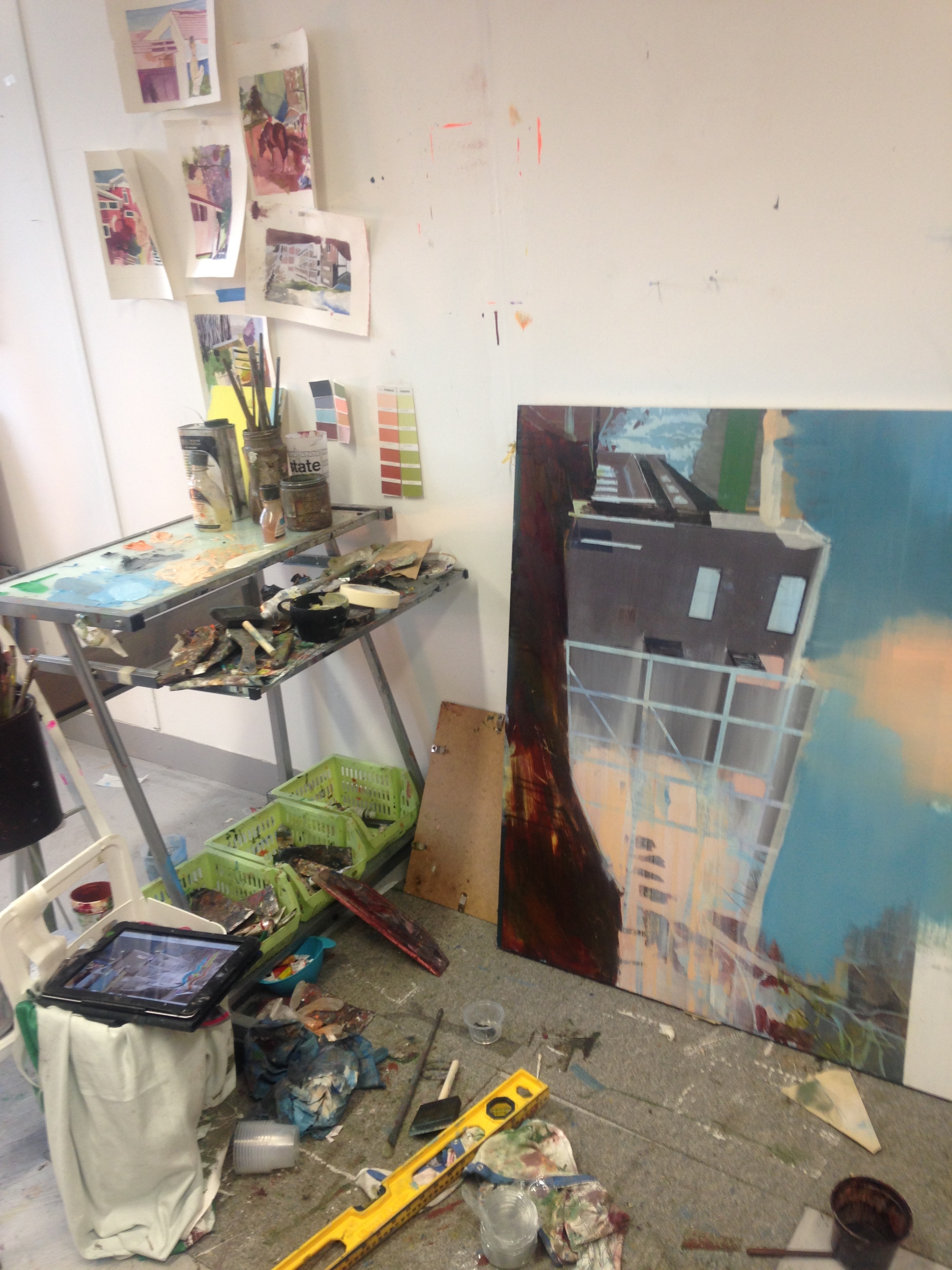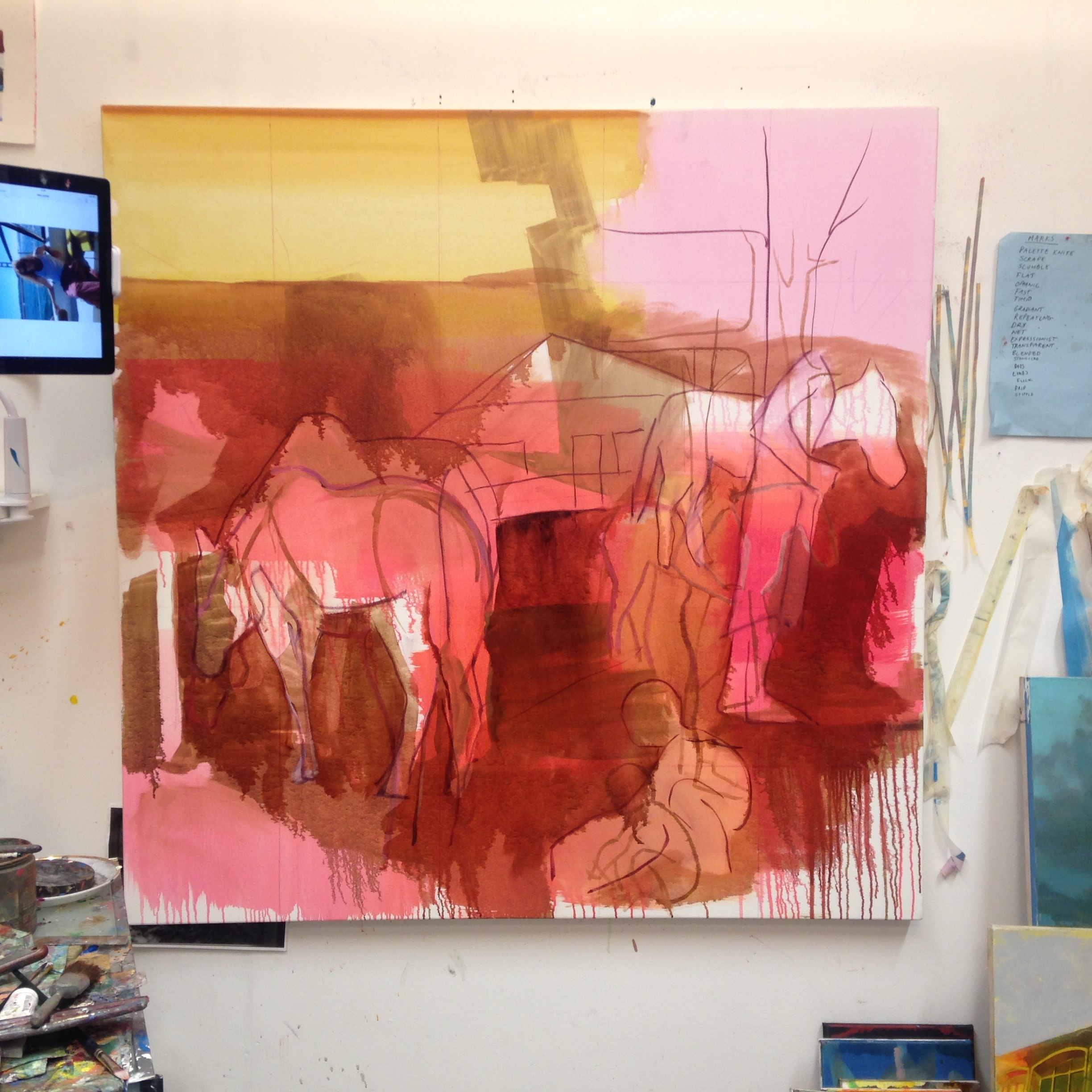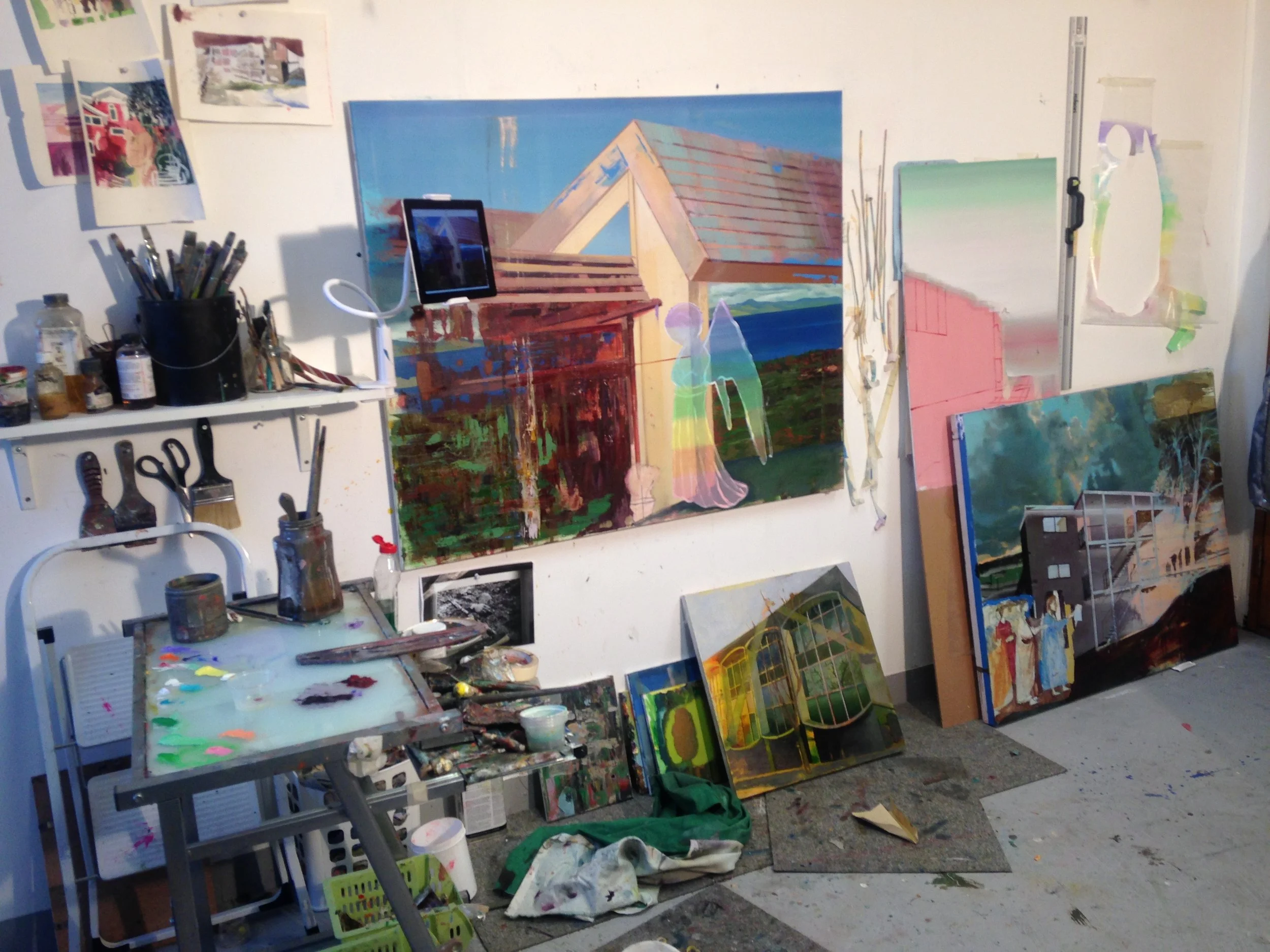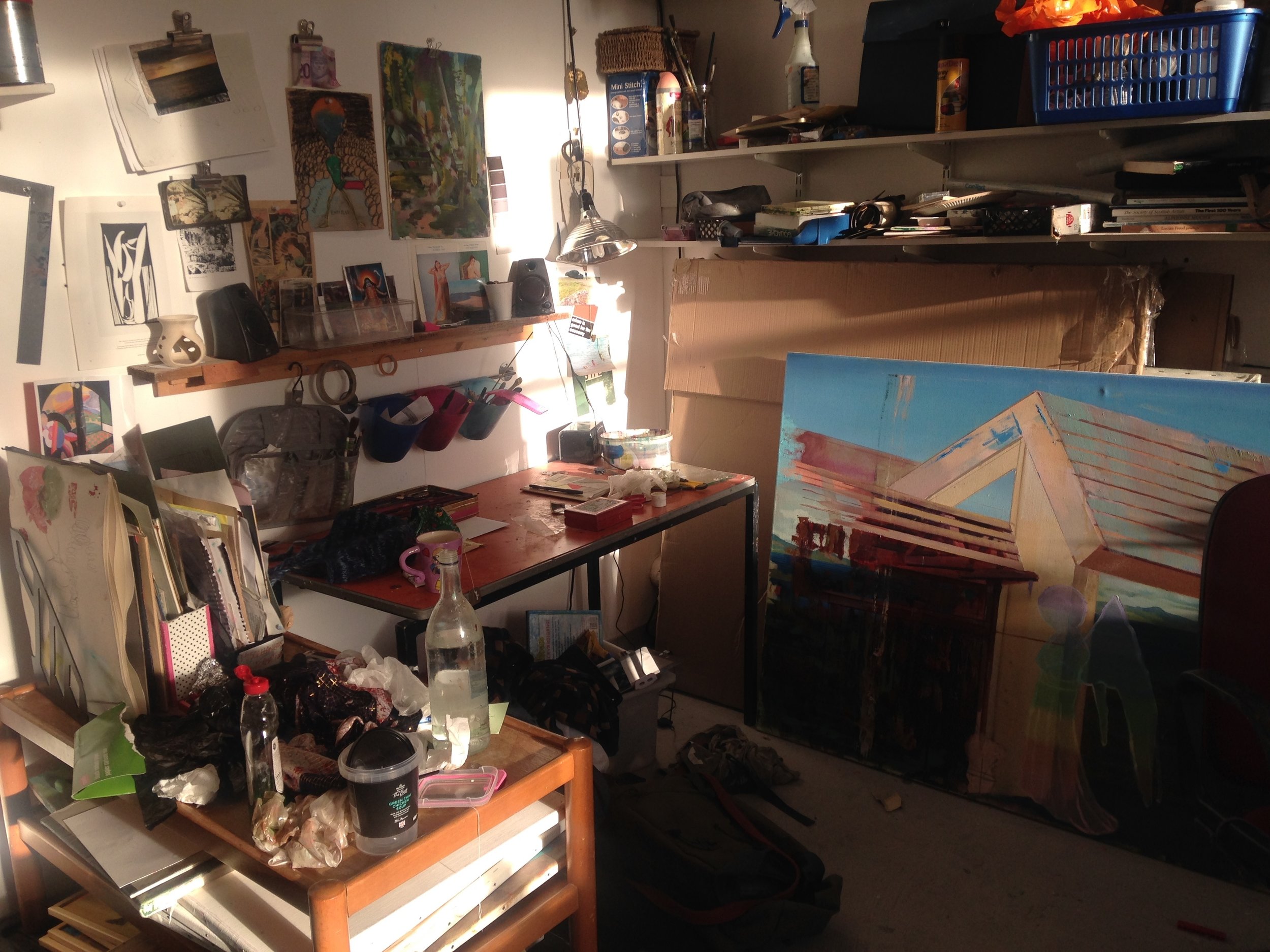the wretched WHY
art practice as inquiry
The human mind demands certainty; panic strikes when we don't know where we are--the first thing we ask a new acquaintance is what they 'do'. We classify and name everything, and when there are no words our brains go numb. Artist statements, bio's and gallery talks--art college and the art market demand that an artist communicate with focus and clarity; and granted, conviction puts you on a creative straight and narrow. But just for the sake of this blog...I want to honor that state of not knowing what the fuck you are doing, why or for what purpose, with no prospect of discovering such any time soon. Because I believe uncertainty is the life blood of the creative act. Questions compel your research and nourish your innate curiosity, so maybe the asking is more important than the answer. This combination of simple questioning and allowing the answer to evolve as you do assists you in verbalizing your work, keeps you on track artistically, all while nourishing a vibrant creative circulatory system.
- your why develops over the course of your career
- creativity is contingent upon uncertainty
- your line of inquiry is your mission
At the retrospective of one of my favorite British Painters, Paul Nash, at Laing Gallery in New Castle, it was fascinating to see his work change during his lifetime. As an official WWII artist, the young Nash depicted vast battle scenes in blasted landscapes, forecasting his sensibility for the surreal, and use of blocky shape and chalky color. After the war, recovering from PTSD he settled into the Dorset countryside, creating psychologically intense images, inserting what he called "imaginative events" into sparse scenes of fields or seashores. By the end of his life he made romantic and beckoning dreamscapes. As I strolled the exhibit, I loved witnessing his expression move from political outrage, to psychic angst, to longing. Though his work always remained recognizable as his own, Nash's ideas and imagery changed as he did. Artist's who's work show evolution and growth are the artist's our culture cherishes. Living inside of inquiry is the key to that growth.
Making great work lies within the limitations of transforming thought into materiality. You learn to direct the chaotic forces of imperfect tools, imperfect studios and imperfect moods--frayed brushes, cheap paints, dull blades and hangovers then work towards your artistic intentions. The art making process is somatic; our emotion and thought packed bodies act upon elements and objects. But this is the magic of art making; within the surrender of our minds to the circumstances and perimeters of stuff and life, our work reveals us to ourselves. Once we are clear on a certain process, creativity craves new unknowns. Being an artist is equally about receptivity and trust, as it is control and power.
I've realized that if I fully apprehended my motives and purpose, I would probably walk out of the studio and shut the door forever. Its the pondering, and ever deepening mystery of creating art objects that keeps me engaged. When I take my idea into form, maybe only 100% of the time is my project different from its original conception. Detaching from a specific outcome delimits possibility, which when used towards a larger question, funnels creativity into a coherent project without it becoming predictable or conceptually one dimensional. By continuing to ask why you make the work you do and asking what is the next step? what now? Your work will tell you. You just need to know what follows what, and the ultimate answer is your North Star.
Becoming Incomplete
I feel the urge to run. I am in a stand off with these tired pictures--colors need tweaking, elements added or taken away, areas masked off or sanded. Avoidance. Eating, emailing, caffeinating--knowing i need to stand, put on my painting jeans, pick up a brush and work. But that threshold of discomfort must be traversed. I get it-- this unease, the not knowing whats next makes the creative process interesting, the pulse of fear and excitement to compel a life's work. I start tentatively with a few misfires, color too dark, too saturated--I sift through a tray of pulverized discolored tubes for a selection of paints to mix and mix and mix. A little Mars black to desaturate, some indigo to cool, and some Napthol to punch it up. The pigments dance at their molecular levels to speak my color poetry. In the past, I strove for a dark neutral palette, and then there was the phase of beiges and creams, right now I am into my pastels and pinks. My current interest in pink is probably some childhood regression, (recovering my inner princess--its pure cliched beauty a balm to middle age disillusionment). I love oil paint's heavy inkiness, like clay from the earth; like minerals and insect blood and flower tincture smeared across fabric. As I begin to make panicky strokes, regret them, rub them out, try again, thats better, I feel my hips loosen, my breathing take pace. I am getting into it--finally-- and I have a few hours before its time to pick up baby (whoops don't mention babies--this is the professional realm here!) I would love to say this is where the fun starts, but its more of a frantic, semi-possessed frenzy, of dripping, splattering, scrubbing and blurring. Then the pause: Like? Not like? Am I ok in my not liking it? Is there something interesting happening, or is it just...crap? The deeply humble place of non-judgement where you don't know if your a fucking badass, or just another person who went to art college ages ago.

